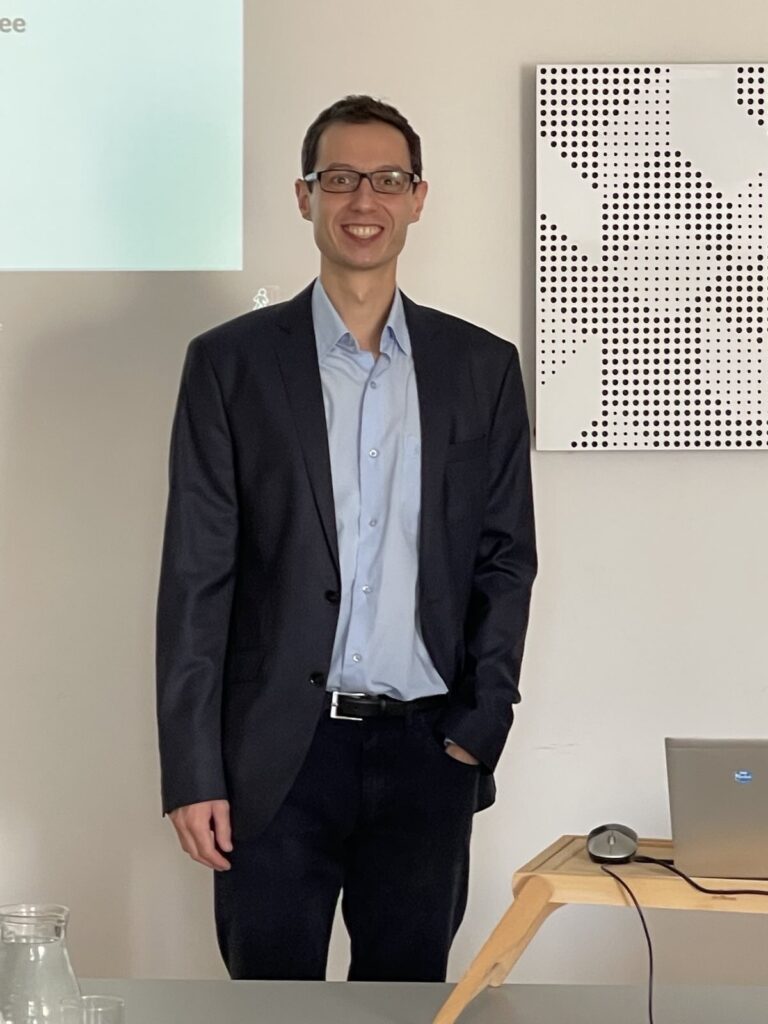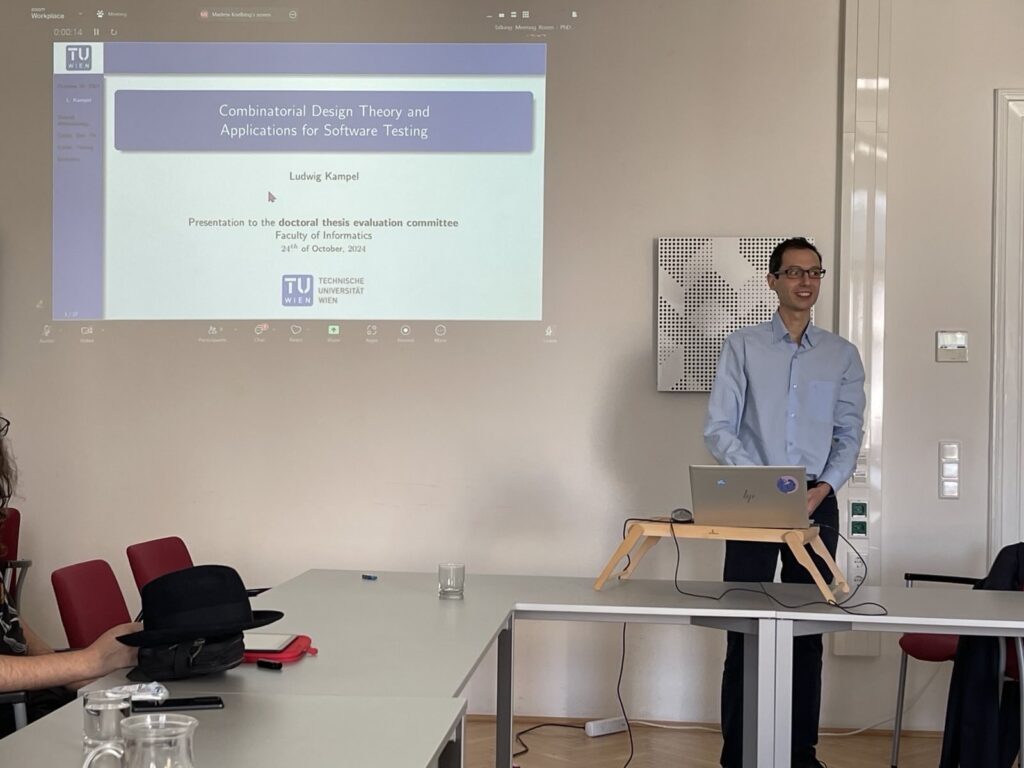Congratulations to Ludwig Kampel on Successfully Passing His Rigorosum
Ludwig Kampel passed his Rigorosum on Thursday, October 24, with excellent evaluations.
© SBA Research
He successfully defended his dissertation, “Combinatorial Design Theory and Applications for Software Testing,” before the committee, which included Prof. Franz Wotawa, Prof. Charles J. Colbourn, Prof. Ana R. Cavalli, Ludwig’s PhD thesis supervisor Priv.-Doz. Dimitris E. Simos, and was chaired by Prof. Christian Huemer.
© SBA Research
Abstract
This thesis pertains to the interplay of combinatorial design theory and software testing. On the one hand, the problem of generating test sets for black-box testing of software systems which are modeled via vectorial input can be abstracted and treated as subject matter of combinatorial design theory and, in a wider sense, as part of discrete mathematics and theoretical computer science. On the other hand, it is subject to this thesis to apply combinatorial designs to solve problems occurring in the realm of software testing. The aforementioned interplay manifests currently in Combinatorial Testing, a software testing methodology centered around test sets that achieve full t-way coverage of a software’s input space. In order to further and strengthen the interconnections between combinatorial design theory for software
testing, we will contribute to and advance individual parts of the combinatorial testing process. According to the overall methodology, this thesis is structured in two parts. The first part pertains to the theoretic aspects of this work, such as objects of combinatorial designs, their properties, generation and related problems; the second part comprises concrete applications of combinatorial design theory for testing software and software-aided systems, including dedicated case studies and industrial applications. In the conclusion we capture the individual contributions described throughout this work and outline how they advance the combinatorial testing process, thereby extending the interplay of combinatorial design theory and software testing.

